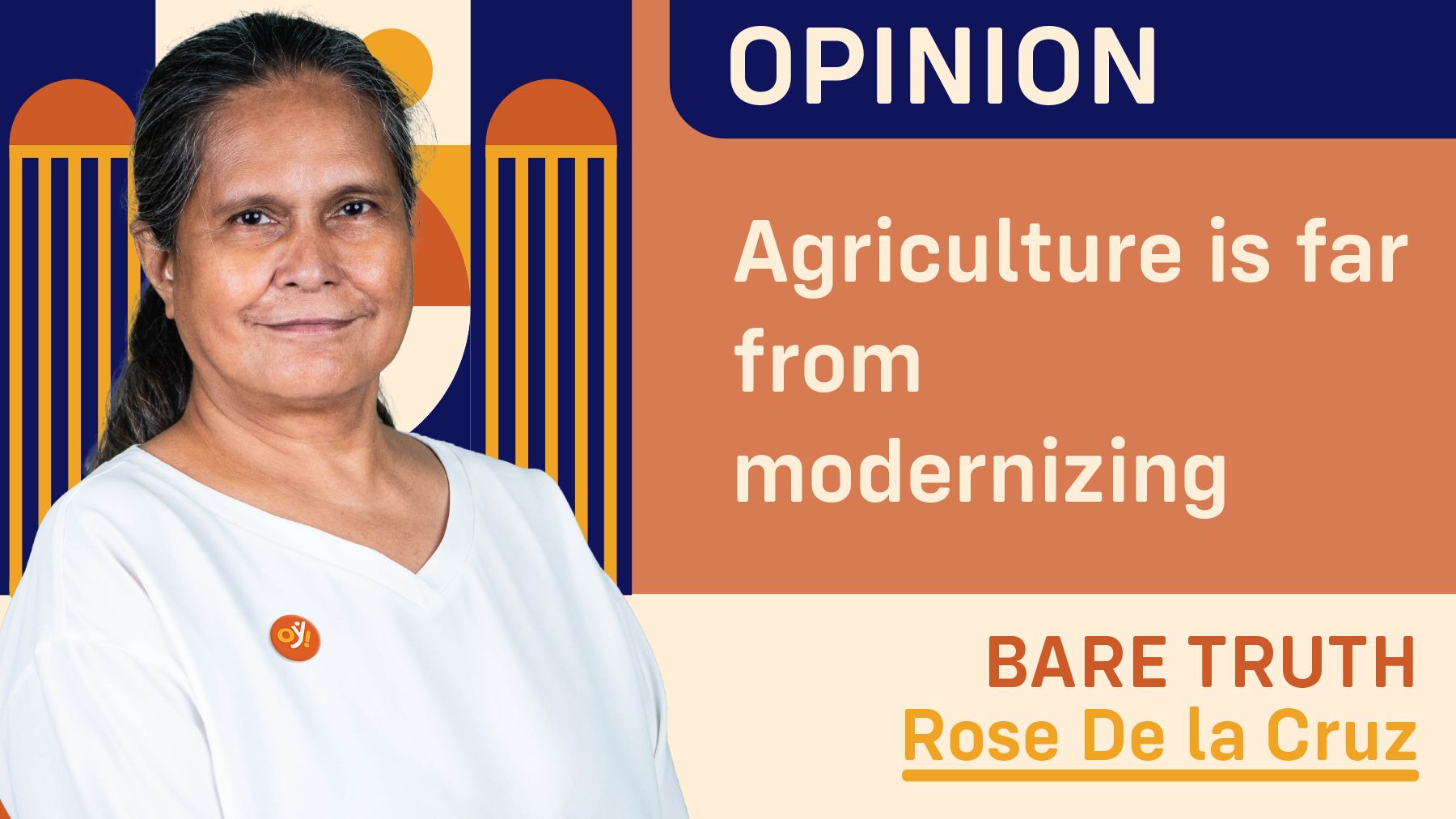Even if this administration is able to equip farms with (even the most basic to the ultra-modern) farm machinery, we can never really call the agriculture sector as modernized for as long as farmers’ income, welfare, food availability and accessibility do not improve, but continue to retrogress.
The Agriculture and Fisheries Modernization Act (AFMAO of 26 years has not even had a positive impact on the sector, so long as farmers and fisherfolk continue to be as impoverished and incapacitated as now.
Think-tank Philippine Institute for Development Studies pointed this out when it cited that enacting laws is far from enough to achieve their declared lofty goals shows that enacting laws is far from enough to achieve their declared lofty goals.
And in a country where laws have been cynically described as mere suggestions, Afma feels like a painful joke, wrote my favorite Inquirer columnist, former NEDA Secretary Cielito Habito.
This column would be devoted to Habito’s recent roundtable discussions with agriculture experts about modernizing agriculture. He spoke with UPLB alumni – all agri experts, ages from 70s and 90s (all doctors of a specific agri field) and his fellow members in the Coalition for Agriculture Modernization in the Philippines (CAMP)-- on whether Philippine agriculture can now be considered modern. No one answered yes.
But National Scientist Dr. Emil Javier clarified that there are “pockets of modernization” citing the pineapple and banana export industries of Mindanao but that “our most modern agriculture industries appear to be those without government intervention.”
Those which are heavily state regulated – like rice, corn, coconut and sugar which have institutions dedicated to them – are the most backward and troubled. In short, the more government involvement, the worse they perform, remarked Dr. Javier.
For his part, biotechnology expert and champion Dr. Ben Peczon sees no coherent plan guiding our agricultural authorities’ actions. Others spoke of numerous plans.
But CAMP president Dr. Eufemio Rasco, a major author of the National Agriculture and Fisheries Modernization and Industrialization Plan 2021-2030 or Nafmip, questions what happened to the plan as nothing is being heard about it now from top agriculture officials.
Dr. Mario Labadan, of AgriSpecialist Inc. the company that had successfully put science to good use in industry, lamented how the government itself is undermining his substantial missionary investment to commercialize UPLB’s proven Bio-N microbial fertilizer.
“Where is the sense in the government pushing farmers to favor imported fertilizers over far environmentally friendlier Bio-N, at three times the cost,” he asked.
Someone cynically replied that there’s more money to be made for less-than-honest officials from large import procurements than from pushing homegrown inputs, even if demonstrably superior. Unfortunately, the DA’s checkered track record with procurement scandals over the years lends credibility to such naughty suspicions, Habito remarked.
“How can our agriculture modernize, when the young people who would logically bring about modernization are turning away from the sector?” mused Dr. Fernando Bernardo, founding president of the Visayas State College of Agriculture (now the Visayas State University).
The group’s most senior member at 94, Rasco observed that young people venturing into technology-enabled agribusiness often are not even children of farmers, whose own offspring have only seen persistent poverty out of their parents’ occupation.
Their view is that there is hope in those innovative, nonfarm-raised young people who are finding exciting technology applications at all links of the value chain spanning finance (crowdfunding, other financial technologies for farmers); field production (soil sensors, drones, field robots); processing (robotics, artificial intelligence); transport, logistics, and tracking (Grab/Uber-type platforms, blockchain); and marketing (e-commerce, app-based farm-to-customer platforms).
All told, Habito said, the group found consensus on three fundamental must-do’s: (1) consolidate our fragmented farms via cooperatives, contract growing, or even easing land ownership ceilings for agribusiness investors; (2) diversify our farms by shifting more attention and budgets well beyond the disproportionate share of rice; and (3) work through local governments by capacitating, empowering, and funding them to do the needed work on the ground that will lead our farmers into modernization.
Habito concluded: “Even as it seems unlikely to happen within our aging group’s remaining lifetimes, hope always springs eternal.”
#WeTakeAStand #OpinYon #ColumnbyRosedelaCruz #BareTruth
